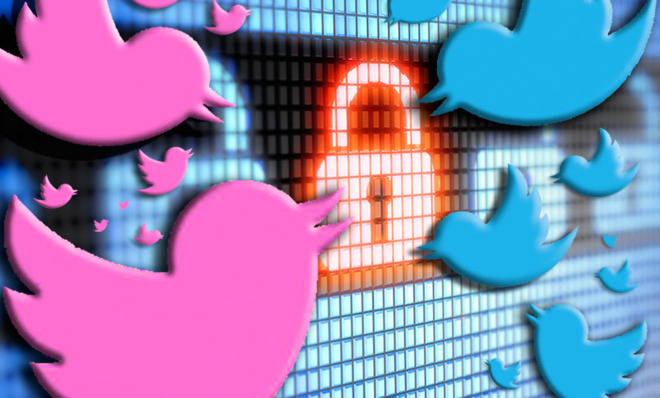The slippery slope of Twitter's attempts to stop harassment against women
The social network's instincts are admirable. But its latest effort could easily end up as a hunt for ideological heresies.


A free daily email with the biggest news stories of the day – and the best features from TheWeek.com
You are now subscribed
Your newsletter sign-up was successful
Internet harassment, especially toward women, has lately been the subject of heightened public concern. In response, Twitter has teamed up with an activist group, Women, Action, and the Media (WAM), to curb "gendered harassment." Few would object to stronger measures against threatening or abusive online behavior. But Twitter's initiative raises the specter of politically selective censorship — and of a paternalism no less demeaning to women than sexual slurs.
For one, the gender-focused effort is based on a claim that, despite its instinctive appeal to many, has a shaky factual foundation: that women are singled out for cyber-harassment and are silenced and driven from internet spaces by misogynist abuse.
To be sure, some women in the public eye, especially feminists such as British activist Carolyn Criado-Perez, American journalist Amanda Hess, and Canadian media critic Anita Sarkeesian, have suffered deplorable harassment and even threats. But men, from blogger Charles Johnson on the left to activist and journalist Lee Stranahan on the right, have also been harassed and threatened online, often with damaging real-life consequences. Female victims get more attention both because of traditional sympathy for women in jeopardy and because they fit into a feminist narrative of patriarchal terrorism.
The Week
Escape your echo chamber. Get the facts behind the news, plus analysis from multiple perspectives.

Sign up for The Week's Free Newsletters
From our morning news briefing to a weekly Good News Newsletter, get the best of The Week delivered directly to your inbox.
From our morning news briefing to a weekly Good News Newsletter, get the best of The Week delivered directly to your inbox.
Last summer, the British think tank Demos reported that in a sampling of male and female public figures on Twitter, the men actually got more abuse: over a two-week period, 2.5 percent of tweets to them were categorized as abusive, compared to fewer than 1 percent for women. The Demos study has been criticized for weaknesses including a definition of abuse that focused solely on swearwords.
But other research, too, challenges the idea that women encounter unique hostility on the internet.
In a Pew Research Center survey of American internet users released last month, 44 percent of men and 37 percent of women said they had experienced online abuse, from name-calling to harassment and threats. While more women than men reported being sexually harassed and stalked online (9-10 percent versus 6-7 percent), these proportions were reversed for physical threats. Furthermore, both sexes were equally likely to report persistent online harassment.
Interestingly, while most respondents felt the social media environment was equally "welcoming" for women and men, 18 percent thought it was more welcoming to women, while only 5 percent saw it as more male-friendly.
A free daily email with the biggest news stories of the day – and the best features from TheWeek.com
So are women at higher risk of "gendered harassment"? That may be in the eye of the beholder. Many feminists who decry online insults that focus on women's gender, sexuality, and appearance seem to have no problem with male critics of feminism being attacked as "man-babies," fat nerds, sexually frustrated virgins with microscopic genitals, or probable rapists.
Even male feminists, like blogger Charles Clymer, can be viciously mobbed when they run afoul of the sisterhood, their most innocuous words twisted to convict them as misogynists and sexual predators.
In the unlikely event that some men report such gendered bashing to WAM, it is even more unlikely that the group will give them a fair hearing. Nor is it likely to advocate for women like Ellen Beth Wachs, an atheist activist who dissents from feminist orthodoxy and who recently tweeted, "As a feminist on the internet most of the hate I've received is from other feminists."
Meanwhile, when it comes to the right victims, Twitter's new monitors are likely to define abuse quite broadly — enough to conflate vigorous dissent with abuse. (One feminist blogger lists "men who play devil's advocate" on issues affecting women as an example of online harassment.) WAM executive director Jaclyn Friedman told The Atlantic the group would escalate complaints "even if they don't fit Twitter's exact abuse guidelines." Blogger Andrew Sullivan reports that several Twitter users critical of feminism have been at least temporarily suspended in recent days, for unclear reasons unrelated to any harassment.
Last year, a similar Facebook partnership with WAM led to at least some instances in which posts critical of feminism were removed — for instance, a graphic by a men's rights group that challenged feminist advocates' rape statistics and declared, "Rape culture is bullshit." Such material may be unpleasant to some, but curbing it on media platforms dedicated to the free circulation of ideas sets a dangerous precedent.
Social media could certainly do a better job of addressing actual harassment. But this must be done without political bias — and must not turn into a hunt for heresies. It's hard to tell what's worse: the muzzling of speech that offends, or the fact that it's being muzzled in the name of protecting female sensibilities.
Cathy Young is a columnist for Newsday and a contributing editor at Reason magazine. Her book Ceasefire!: Why Women and Men Must Join Forces to Achieve True Equality was published in 1999.
-
 Crisis in Cuba: a ‘golden opportunity’ for Washington?
Crisis in Cuba: a ‘golden opportunity’ for Washington?Talking Point The Trump administration is applying the pressure, and with Latin America swinging to the right, Havana is becoming more ‘politically isolated’
-
 5 thoroughly redacted cartoons about Pam Bondi protecting predators
5 thoroughly redacted cartoons about Pam Bondi protecting predatorsCartoons Artists take on the real victim, types of protection, and more
-
 Palestine Action and the trouble with defining terrorism
Palestine Action and the trouble with defining terrorismIn the Spotlight The issues with proscribing the group ‘became apparent as soon as the police began putting it into practice’
